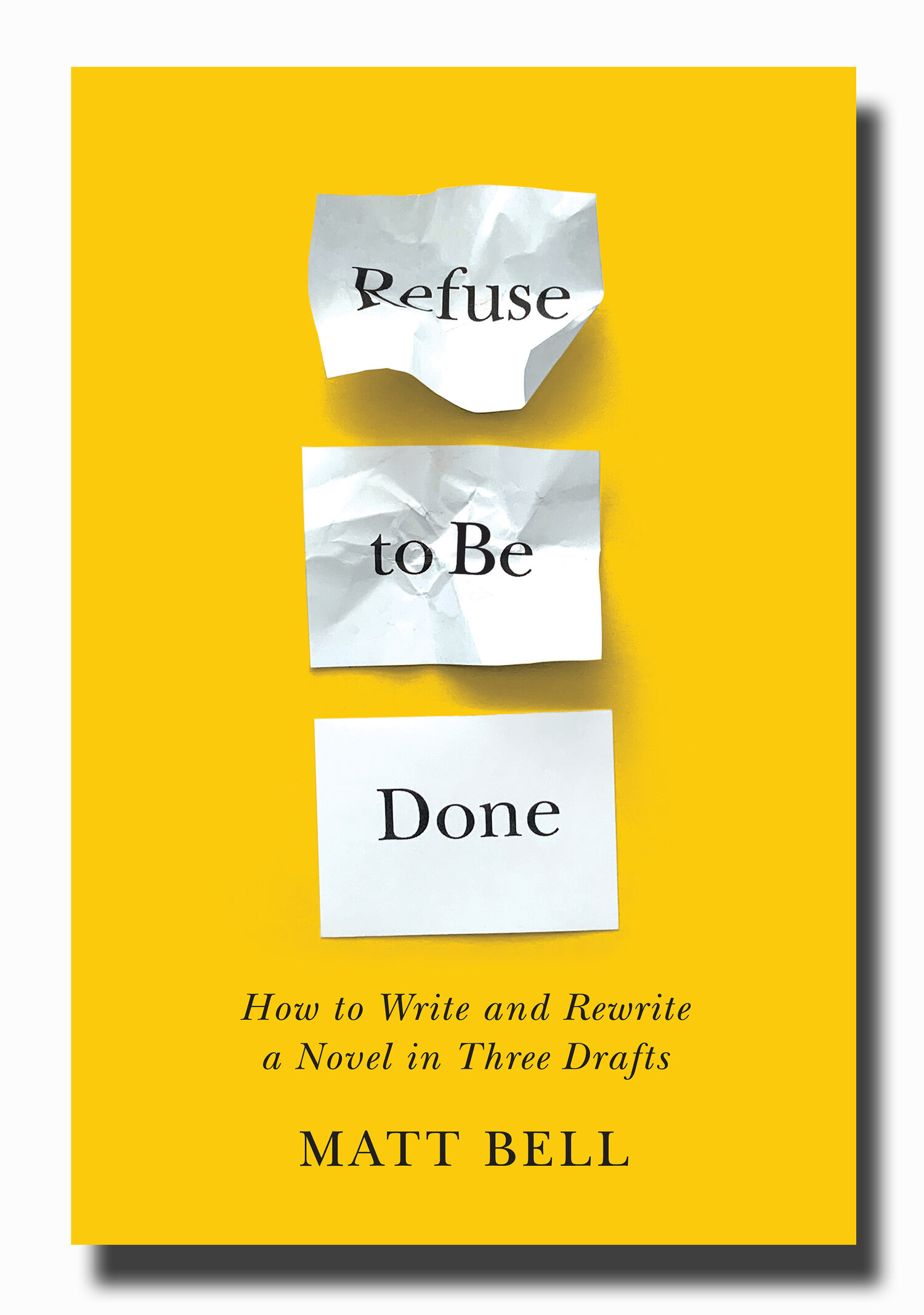Reframing My Relationship With Editing

I hope you find yourselves well as we begin the last month of the year. November has been hectic. You may have noticed that I haven’t been keeping a regular pace. It feels like I’m reliving a year-end version of Groundhog Day. Have you experienced this too?
The mad rush to get (everybody’s) things done before the year is over. Every year, I tell myself I’m never doing this again. There’s no need for a mad dash to the finish line if you’ve been keeping a regular pace the entire time. But alas, my pace is not the same as everyone else’s. And I guess I have to adapt. We all do, but do we really need to?
The other day, an acquaintance, who works as an accountant, asked how my novel was going. I must have made a terrible face because he laughed and said, “Sorry, we can talk about something else. Say, how is that Canadian soccer team doing?” (This was before they lost their first game at the World Cup.)
Like most writers, I said it was coming along. Slowly. While I’ve barely made a dent in my next draft, this didn’t feel like a complete lie. I mean, sort of.
I think about my novel a lot. On a conscious level, my brain will often question why I’m writing this book. Is it even worth pursuing? Why haven’t I made more progress otherwise? How long have I been working on this?
This really isn’t the brain talking though. It’s what Steven Pressfield, author of War of Art, calls Resistance or what others have named your saboteurs, your inner voice, etc.
But now and then, I catch my brain actively mulling over a plot problem or trying to figure out what feels off about the main character. I know when it’s been working in the background when new ideas seem to pop out of nowhere.
Just the other day, I walked by an office scene I knew I had to adapt for my novel. A few days later, I picked up on another idea while I was reading an unrelated book.
To paraphrase my friend Lisa, “brewing is part of the writing process”.
If I were to be honest, I’ve been putting it off after realizing I hated editing. It’s a long and tedious exercise that focuses on fixing things rather than creating or building them. On a subconscious level, I know that editing is part of the creative process. It’s inevitable and must be done.
Yes, I could get someone to do it for me. But my draft isn’t in any shape or form to share yet. It would be useless anyway; I (mostly) know what needs fixing. At least for the moment.
So I borrowed and bought books on revising. I took an online workshop on how to self-edit. I asked my writing community for suggestions on the next steps. One writer said she creates a new outline from her full draft, then works from there. So I outlined what I had, and made copious notes in the margins of my manuscript.
At this stage of revisions, structure and plot problems are what you should focus on. I took a break to “let it rest”. I worked on other pieces, then came back to it later. The plan was to hack away at it, one chapter at a time. I got through two and a half. Then, I stalled. I could rapidly see the mess it was becoming.
A few weeks passed by. I came across an episode of Ctrl Alt Delete with Matt Bell, who talked about his latest book, Refuse To Be Done: how to write your book in three drafts. Emma Gannon, the host, kept saying how she wished she had read his book while finishing her novel. Perfect, I thought. This sounds exactly like what I need.

I borrowed the book from the library and read the intro, which said I could jump to whichever section applied to me. Excellent, I thought. So I skipped the first chapter and dove directly into the one that talked about second drafts.
Out of the three sections, the second one is the shortest; it’s not more than 15-20 pages. This is because Bell basically says you should rewrite everything at this point.
I was, of course, mildly peeved after reading this, but then quickly saw his point. I knew it would be quicker to write a new draft than make a hodgepodge of copy and pastes with my manuscript.
That’s when I began reframing my relationship with editing.
Suddenly, the prospect of writing various versions of the same story seemed exciting. At least, more exciting than editing. To be clear, as I move forward, those versions will have to resemble each other more and more. Especially as I approach a final version before line editing.
It seems like 70% of writing is just overcoming mental barriers. Funnily enough, I later read this passage in Stephen Koch’s The Modern Library Writer’s Workshop:
“If you are about to begin a second draft, it is best to prepare yourself psychologically by realizing that you are about to rewrite––not polish, rewrite––your entire project. [...] you should plan on rewriting in depth.” -Stephen Koch
In the end, I had a friendly conversation with the accountant who asked about my manuscript. It surprised me to see that he found my themes interesting and timely, and mentioned that there were parallels with Marx’s Capital. 🤯🤯🤯
Ok, back up for a moment. I’m not saying this is true, or that this is my intention. But you can be damn sure that conversation rekindled my motivation, and now I’m ready to (re)write.
Things worth sharing
- In week 3 of his NaNoWriMo Diaries, Suyi Davies Okungbowa wrote, “Sometimes, good enough is part of the road to ambition.” I love reading his newsletter, After Five, where he talks honestly about writing and the craft. I subscribed to his newsletter earlier this year, after reading Son of Storm, the first of The Nameless Republic Series. The second book is supposed to come out in early 2023, so you have time to begin this epic fantasy series now.
- Pantone announced its colour for 2023. I’m sort of digging the Viva Magenta, but I’m not sure how I feel about it being created with A.I. Funnily enough, my accountant acquaintance had mentioned that same AI generative tool when we were talking about my book. It’s called Midjourney, look it up. People are making crazy art with it.
Ear candy
Lately, I’ve been re-exploring the alt-classical scene. Some of my favourites are Ólafur Arnalds, Joep Belving and Nils Frahm.
This week, I’ve discovered Lambert’s latest album, Open. The opening track, with the same title, has been playing nonstop all week. Thanks to him, I’ve also discovered Korean-Dutch harpist Lavinia Meijer.
Alt-classical music is wonderful for writing, reading, or whenever you need to calm the old nerves. Although I’ll admit that it makes me sleepy, depending on the time of the day 😊
Now it’s December, which means I’ll be listening to Mariah Carey, Boney M. and the Vince Guaraldi Trio, among many other favourites, on repeat. (Yes, yes, I love holiday music. But I’ll spare you if you don’t.)
Happy writing, happy creating.
G.G. Law
If you enjoyed these posts, please feel free to share them with someone else who might like them.





